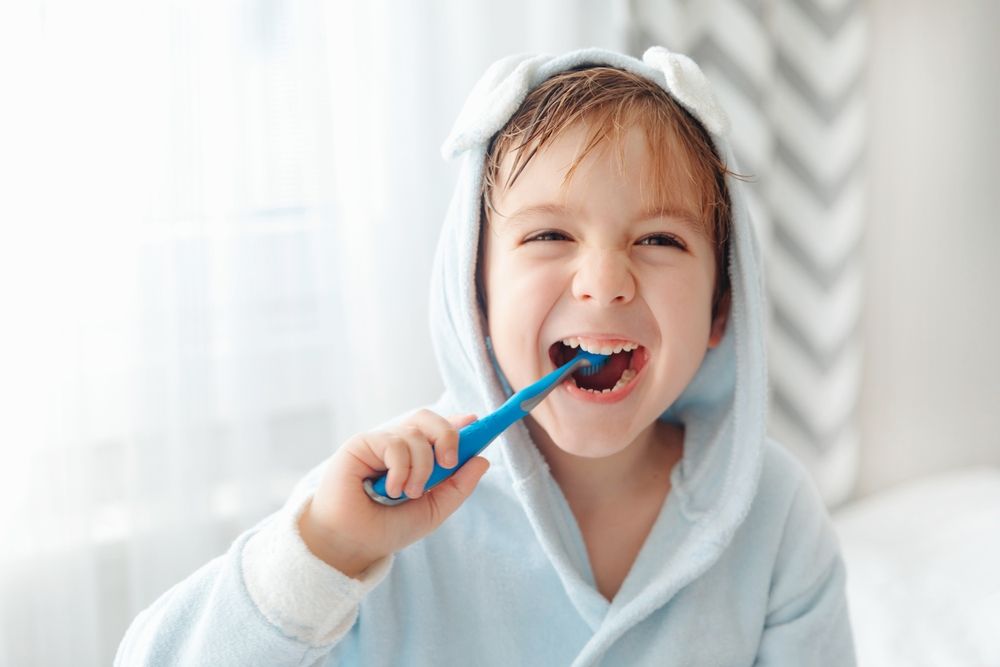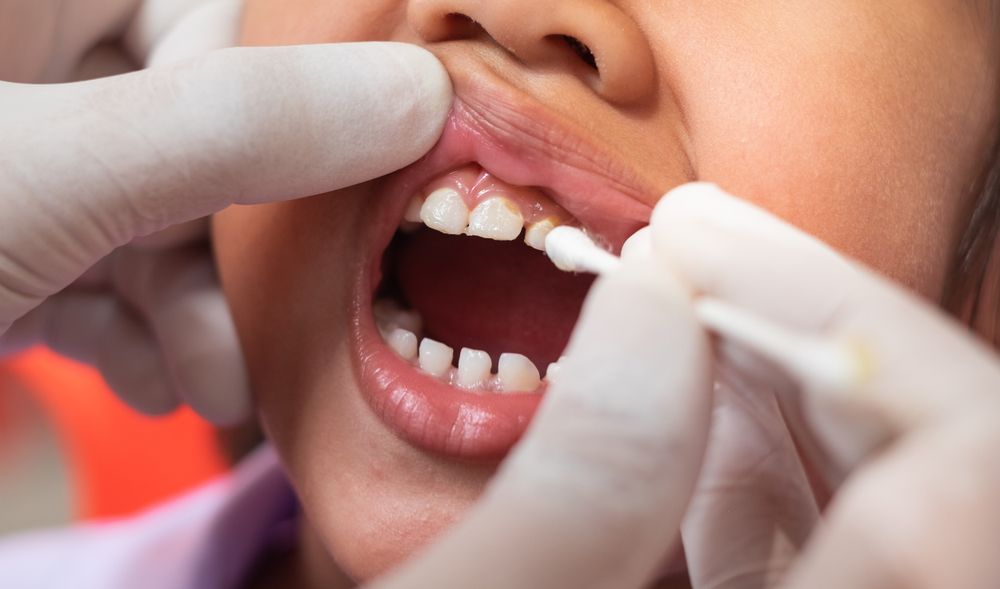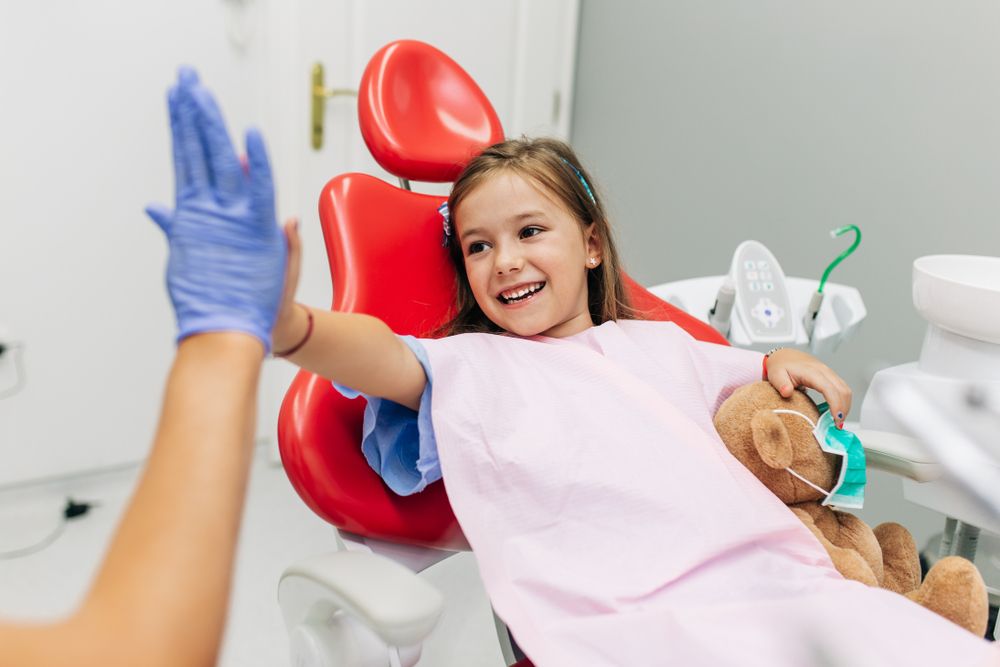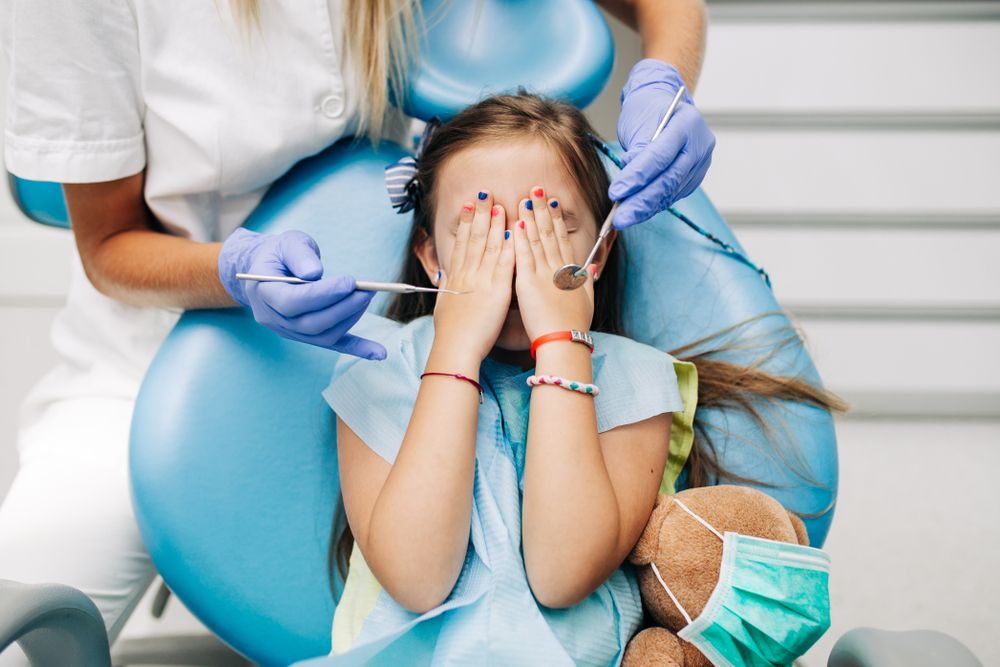Blog List

How Often Should Kids Get Dental Cleanings?
July 9, 2024 / in /
Consistent dental cleanings play a significant role in shaping your child's oral health trajectory. When done regularly, these visits help remove the buildup of plaque and tartar, which can lead to dental problems if left unchecked. Regular cleanings also allow your dentist to monitor your child's dental development, identify any emerging issues, and provide tailored preventive care. This proactive approach helps maintain the health and integrity of your child's teeth and gums, reducing the need for more extensive (and often costly) treatments in the future.

Top 10 Dentist-Approved Snacks for Kids
June 3, 2024 / in /
Maintaining good oral hygiene from an early age sets the foundation for a lifetime of healthy teeth and gums. In today's fast-paced world, it's tempting to reach for convenient snacks that may not be the healthiest choices for your child's teeth and gums. However, with a little knowledge and planning, you can provide your little ones with delicious and nutritious snacks that not only satisfy their taste buds but also promote optimal oral health.

Is IV Sedation Right for Your Child? Factors to Consider Before Dental Treatment
May 20, 2024 / in /
As a parent, ensuring your child's well-being and comfort during dental procedures is a top priority. In the realm of pediatric dentistry, intravenous (IV) sedation has emerged as a valuable option for managing anxiety and discomfort in young patients. However, before deciding on this approach, it's crucial to understand the intricacies involved and weigh the various factors that contribute to its suitability for your child.

Promoting Oral Health: The Importance of Healthy Eating Habits for Strong Teeth and Gums
/ in /
Proper nutrition plays a crucial role in maintaining good oral health. The food we consume not only affects our overall well-being but also has a significant impact on the health of our teeth and gums. A well-balanced diet that includes essential nutrients is vital for maintaining strong teeth, healthy gums, and preventing oral diseases.

The Unsettling Link Between Junk Food and Oral Health
March 8, 2024 / in /
Understanding the interplay between junk food and oral health requires a comprehensive look at how these foods interact with your teeth and gums. From the immediate effects after consumption to the long-term implications, this exploration is essential. It is particularly crucial when considering children and oral health, as their developing bodies are more susceptible to the adverse impacts of poor dietary choices.

The ABCs of Children's Dental Health: Awareness, Brushing, and Cavities Prevention
February 6, 2024 / in /
The health of your child's teeth and gums plays a crucial role in their overall well-being. As a parent, it's important to understand and prioritize your child's dental health from an early age.

What Are the Stages of a Child’s Teeth?
January 02, 2024 / in /
Children's dental health is an essential aspect of their overall health. The journey of a child's teeth from infancy to adolescence isn't just about their smile. It's also about their ability to eat and speak properly. It's a journey that can significantly impact a child's self-esteem and confidence.

What Are the Options When it Comes to Pediatric Anesthesia? The Role of IV Sedation
December 18, 2023 / in /
Children have unique physical and emotional needs that must be appropriately addressed during medical procedures. Anesthesia for pediatric dental care requires a specialized approach.

IV Sedation - When and Why Your Child Might Need Sedation
November 1, 2023 / in /
As a parent, you may have experienced the challenges of taking your child to the dentist. Many children, especially at a young age, have a fear of dental visits. This fear can stem from various factors such as previous negative experiences, the unfamiliarity of the dental environment, or even the fear of pain.

Oral Health Month
October 13, 2023 / in /
October is more than just the arrival of fall and the anticipation of Halloween. It’s Oral Health Month! This is a period specifically designated to highlight the importance of maintaining good oral health.










